
With its aggressive and confrontational tone, this song is about the deception, corruption, and social injustice in our society. It's fueled with a sense of frustration and anger towards a system that perpetuates lies and inequality, which many may relate to. It speaks of the corrupting influence of power, denouncing those who prioritize personal gain and display a disregard for human life. The song suggests that the lies have been repeated and told so frequently that they no longer elicit sympathy or belief in those whom they pander to.
With its aggressive and confrontational tone, this song is about the deception, corruption, and social injustice in our society. It's fueled with a sense of frustration and anger towards a system that perpetuates lies and inequality, which many may relate to. It speaks of the corrupting influence of power, denouncing those who prioritize personal gain and display a disregard for human life. The song suggests that the lies have been repeated and told so frequently that they no longer elicit sympathy or belief in those whom they pander to.

The song, as heard in dialogue, is about the 1992 Los Angeles Riots, which was caused by the acquittal of four white police officers accused of beating a black motorist. It contains actual samples from police radio broadcasts and news report snippets of the riots. Machine Head frontman Robb Flynn told Kerrang that industrial bands like Ministry, who put a lot of movie clips in their songs, gave him the idea of telling a story with samples. “It was taking really extreme views from white supremacists and then taking really extreme views from black nationalists, and then trying to find...
The song, as heard in dialogue, is about the 1992 Los Angeles Riots, which was caused by the acquittal of four white police officers accused of beating a black motorist. It contains actual samples from police radio broadcasts and news report snippets of the riots. Machine Head frontman Robb Flynn told Kerrang that industrial bands like Ministry, who put a lot of movie clips in their songs, gave him the idea of telling a story with samples. “It was taking really extreme views from white supremacists and then taking really extreme views from black nationalists, and then trying to find the middle, where we could all come together at the end of it,” he said. “So I took all these really controversial statements for the first two sections of it, and then I tried to find the middle ground and be creative with it. It was more like talking and soundbites, it wasn’t really a song." Additionaly, the songs title came from some graffiti in Flynn’s home city of Oakland, California. He explained "I used to live by the subway and if you drove down towards this punk club where we used to see Rancid and all these bands, it said those words on three cement pillars; it said Real eyes, realize, real lies, and I just thought it was really cool, so when that song came together, there was our song title.”

After beck released the official lyrics, I hear this song as a cry from someone who is trapped in a bad situation. It clearly takes the form of poverty, discussing the hardships of not having a place to sleep but eventually a car, yet still finding comfort in life and the belief that it’ll be ok. I feel like beck, in making it a black hole, translates this into a universal struggle and is attempting to reach everyone feeling discomfort and fear and uncertainty, with the black hole swallowing all of us, but making a point to assure the listener’s...
After beck released the official lyrics, I hear this song as a cry from someone who is trapped in a bad situation. It clearly takes the form of poverty, discussing the hardships of not having a place to sleep but eventually a car, yet still finding comfort in life and the belief that it’ll be ok. I feel like beck, in making it a black hole, translates this into a universal struggle and is attempting to reach everyone feeling discomfort and fear and uncertainty, with the black hole swallowing all of us, but making a point to assure the listener’s minds (like the little boy) that it’s ok.

I love this song so much. As a Tolkien reader (my grandad himself was a huge Tolkien fan), here is my take on the song:
I love this song so much. As a Tolkien reader (my grandad himself was a huge Tolkien fan), here is my take on the song:
The lady who's sure = Galadriel, from Fellowship of the Ring
The lady who's sure = Galadriel, from Fellowship of the Ring
The stairway to heaven = admission back into Valinor, where Galadriel is from. In the books, being one of the Noldor who rebelled, Galadriel was banned from Valinor, so when Ann (Wilson) sings "And she's buying a stairway to heaven", she means that Galadriel is trying to find a way to gain readmission to her home city, even if she has to pay a price...
The stairway to heaven = admission back into Valinor, where Galadriel is from. In the books, being one of the Noldor who rebelled, Galadriel was banned from Valinor, so when Ann (Wilson) sings "And she's buying a stairway to heaven", she means that Galadriel is trying to find a way to gain readmission to her home city, even if she has to pay a price for it.
"If the stores are all closed / With a word she can get what she came for" = if all avenues are closed to Galadriel, the word is "No"; "what she came for" pertains to her readmission to Valinor (see above)
"There's a feeling I get when I look to the west / And my spirit is crying for leaving" = Ann now switches to the first person narration, these lines are from Galadriel's PoV; she (Galadriel) is sad because she misses Valinor and wants to return.
"In my thoughts I have seen rings of smoke thru the trees / And the voices of those who stand looking" = The rings of smoke are (who else?) Gandalf the Grey. "Those who stand looking" are the Valar, the high-ranking spirits, who shaped and ruled Middle-Earth.
"And it's whispered that soon if we all call the tune / Then the piper will lead us to reason" = the "piper" is likely Aragorn, who led the war against Sauron. Aragorn has been depicted smoking a pipe intermittently, especially during the journey to Rivendell.
"And a new day will dawn for those who stand long / And the forests will echo with laughter" = after the war against Sauron, peace will return to Middle Earth, and those who stood strong shall be happy.
"Yes there are two paths you can go by, but in the long run / There's still time to change the road you're on" = you can always choose to be good, instead of taking the seemingly "easy" route to evil. This is a common theme throughout LotR.
"And as we wind on down the road / Our shadows taller than our soul / There walks a lady we all know / Who shines white light and wants to show / How everything still turns to gold" = this is a very famous part of LotR, I doubt any Tolkien readers would not recognize this. Frodo and Sam Gamgee are now heading east towards Mordor (the Shadow is therefore in front of them). "Who shines white light" is the famous scene when Galadriel takes the Ring from Frodo, and cries out, "And now at last it comes. You will give me the Ring freely! In place of the Dark Lord you will set up a Queen. And I shall not be dark, but beautiful and terrible as the Morning and the Night! Fair as the Sea and the Sun and the Snow upon the Mountain! Dreadful as the Storm and the Lightning! Stronger than the foundations of the earth. All shall love me and despair!" And finally, "How everything still turns to gold" pertains to the Ring that Galadriel took from Frodo, and how in spite of all the temptation the heroes had to face, the Phial of Galadriel kept them strong.
"And if you listen very hard / The tune will come to you at last / When all are one and one is all" = this is basically a re-wording of "One ring to rule them all"
"To be a rock and not to roll" = to be strong and resist evil, another common theme we see throughout LotR.
So there you have it, the TRUE interpretation of this famous song. Need I say more?

More apt title: Gold-digger Blues...
More apt title: Gold-digger Blues...

Srsly, is it just me, or does all 14 commentators here so far seem to have some need of professional help?!
Srsly, is it just me, or does all 14 commentators here so far seem to have some need of professional help?!
"I write the songs" is simply an ode to music - albeit written from the point of view of music as if it were anthropomorphized. It is not the first ode to music, and it will not be the last. We all love music, do we not (is that not why we are all on SongMeanings in the first place)? What better than a song that praises the beauty and versatility of music as an art - such as "I...
"I write the songs" is simply an ode to music - albeit written from the point of view of music as if it were anthropomorphized. It is not the first ode to music, and it will not be the last. We all love music, do we not (is that not why we are all on SongMeanings in the first place)? What better than a song that praises the beauty and versatility of music as an art - such as "I write the songs", for instance? Music has been alive forever, people have been making music since goodness knows when; and it goes without saying, music itself can be credited with writing the very first song. Through the lips of people like you and I. This is why we still enjoy music today, in all its varying genres.
When I say that "I write the songs" is not the first ode to music, and will not be the last, here is my methodology to prove:
In the early 1600s, William Shakespeare wrote a famous ode to music in his play Twelfth Night, later set to music by Henry Purcell - "If music is the fruit of love, play on, play on" (sung here by soprano Kathleen Battle: https://www.youtube.com/watch?v=ZPCDas6U4aI).
In 1817, Franz Schubert wrote "An die Musik" (dedicated to music), also known by its first line "Du holde Kunst" (you pure art form), which talks about how music can transport you to a different world. (Sung here by Elisabeth Schwarzkopf: https://www.youtube.com/watch?v=Bm_AKMV0ME0)
And more recently in 1999, English Eurodance singer Anna "Lolly" Kumble released her debut single, "Viva la radio" (which you can see its official music video here: https://www.youtube.com/watch?v=tXIPQBXHS7I), which glorifies the then-new technology of the MP3 player and how it enables one to listen to one's favorite songs on the go. A modern ode to music, but still, an ode to music nonetheless.
Music is one of the oldest forms of art. It will never die. It will always exist, and will continue to develop itself with time. The music we enjoy so much today is a unity in diversity that comes in so many genres, styles, and more. "I am music and I write the songs" - I think the line could not be clearer, it is music personified saying that it has given us all the songs we enjoy today. If you don't enjoy music, why did you even sign up with SongMeanings at all?
So please, please, Mr Matthew whatever-your-name-is, stop with all this "Jesus" and "Bible" obsession, and start focussing on the music instead, and enjoy it, like any normal person would. If you want to continue obsessing about your "Jesus" and "Bible" nonsense, please go to your cathedrals, suck up to your clergy, continue giving them millions of pounds every week so that their pop-singer wives can travel the world, do what you wanna do - but srsly, don't come and bring your "Jesus" and "Bible" comments to a song that has nothing whatsoever to do with that.
From a Masters Music student about to pursue their PhD in Music.

The song that explores the dark side of humanity through the persona of Satan. It's not a literal expression of sympathy for the devil, but rather a narrative that intertwines historical events with the idea that evil is a human capacity, not solely an external force. The song uses the devil's perspective to highlight humanity's capacity for both good and evil, suggesting that we are all complicit in the tragedies and atrocities throughout history.
The song that explores the dark side of humanity through the persona of Satan. It's not a literal expression of sympathy for the devil, but rather a narrative that intertwines historical events with the idea that evil is a human capacity, not solely an external force. The song uses the devil's perspective to highlight humanity's capacity for both good and evil, suggesting that we are all complicit in the tragedies and atrocities throughout history.

I'm still stuck analyzing line 2. Left for something you see though you're here I can't tell if this needs commas or intentionally ambiguous. 1) Left for something, you see, though you're here. ✅ sure 2) Left for something you see, though you're here. ✅ sure 3) Left for something, You see though you're here. ❌ sense not made but she sings: Left for something you, see though you're here. WTF Seems purposefully difficult to understand.
I'm still stuck analyzing line 2. Left for something you see though you're here I can't tell if this needs commas or intentionally ambiguous. 1) Left for something, you see, though you're here. ✅ sure 2) Left for something you see, though you're here. ✅ sure 3) Left for something, You see though you're here. ❌ sense not made but she sings: Left for something you, see though you're here. WTF Seems purposefully difficult to understand.
I like #2 personally. It's like the guy with girlfriend looking at the other girl meme. You're off somewhere else fantasizing about what you don't have when you got something good here.
I like #2 personally. It's like the guy with girlfriend looking at the other girl meme. You're off somewhere else fantasizing about what you don't have when you got something good here.

To me it's about the big bang and the cosmic microwave background.
To me it's about the big bang and the cosmic microwave background.


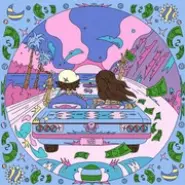
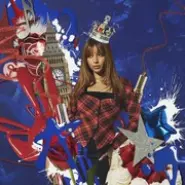

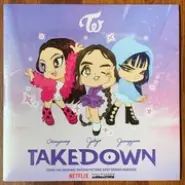
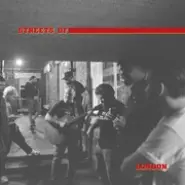
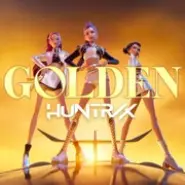
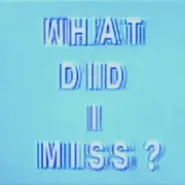

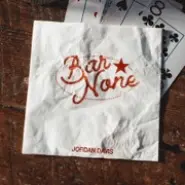
This song delves into societal decay, corruption, and the cycle of hate in media and how it's been manipulated; It also talks about drug addiction and social injustice that comes as a result. The phrase "Hate breeds hate" is what this track revolves around, encapsulating the idea that media fuels negative emotions and perpetuates a cycle of violence and suffering. It highlights how the information is twisted to serve the interests of the powerful, leaving the vulnerable even more exposed to exploitation. Drug addiction is the resolution of the despair felt by many, as they use it as a...
This song delves into societal decay, corruption, and the cycle of hate in media and how it's been manipulated; It also talks about drug addiction and social injustice that comes as a result. The phrase "Hate breeds hate" is what this track revolves around, encapsulating the idea that media fuels negative emotions and perpetuates a cycle of violence and suffering. It highlights how the information is twisted to serve the interests of the powerful, leaving the vulnerable even more exposed to exploitation. Drug addiction is the resolution of the despair felt by many, as they use it as a means of escape from a harsh reality; Individuals are often left to fend for themselves in a system that neglects their needs. Crimes against many minorities get twisted in ways to make the minorities the criminals in acts of hate; A facet of life that has never faded away.